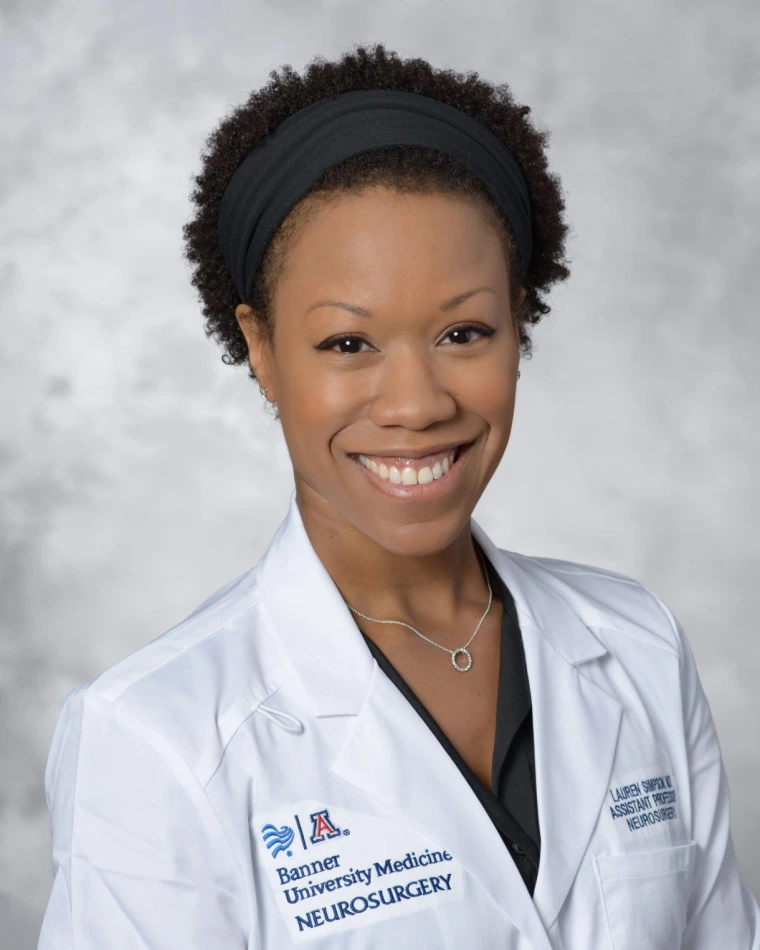Lauren Simpson, MD, MPH
Dr. Simpson provides neurosurgical care at Banner University Medical Center and is an active teaching faculty member in the Neurological Surgery Residency Program. She was born and raised in Michigan, where she completed her undergraduate studies focusing on the brain, behavior and cognitive science. As a medical student, she performed research and volunteer work in low- and middle-income countries, witnessing the global health care crisis and envisioning how to include her growing interests into an academic career. She is passionate about providing patient-centered, value-based, therapeutic care for patients across the full spectrum of neurosurgical disease. She is an advocate for her patients and provides mentorship for learners of all levels. She cherishes any activity that allows her to spend time with loved ones, and thoroughly enjoys true crime, good food, leisurely travel and exploration of the great outdoors.
Degrees
- MD: Duke University School of Medicine, Durham, North Carolina
- MPH: University of North Carolina Gillings School of Global Public Health, Chapel Hill
- BS: University of Michigan, Ann Arbor
epilepsy, seizure disorders, brain tumors, congenital neurological abnormalities, spina bifida, tethered cord syndrome, hydrocephalus, Chiari malformations, idiopathic intracranial hypertension (IIH), craniofacial disorders, craniosynostosis, cerebrovascular disease, moyamoya disease, movement disorders, dystonia, spasticity, traumatic brain injury, spinal cord injury, and pediatric-to-adult transitional care


